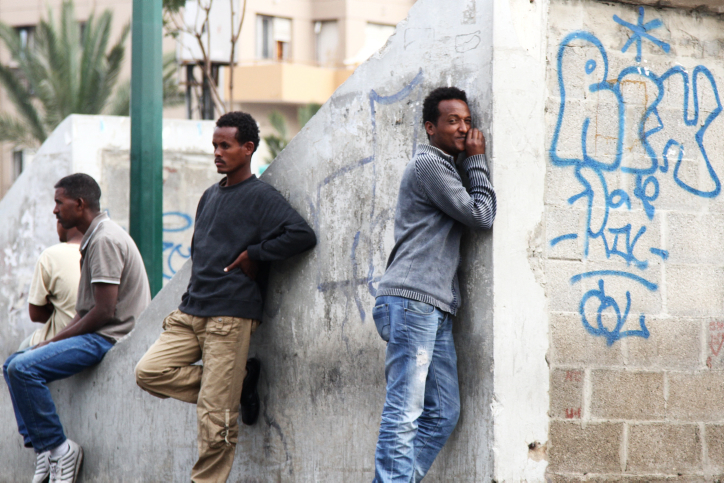Israel is set to release 1200 illegal immigrants after the country’s Supreme Court ruled this week that immigrants who had been in custody for 12 months be freed.
According to the Israel interior ministry, there are over 45,000 African illegal immigrants and asylum seekers in the country, with most from strife-ridden Eritrea and Sudan.
But Israel is a close-knit society that faces threats from almost all its Arab neighbours, and in 2012 the country’s Parliament passed the ‘anti-infiltration’ law, effectively making illegal immigration a nightmare for those Africans seeking either asylum or economic emancipation. This also set the pace for the illegal immigrants and asylum seekers to be held without charge.
Media reports also indicate Israel has erected a fence along its border with Egypt, to stem the growing tide of illegal immigration but hasten to add that the Jewish state is not sure of what to do with those already inside its borders.
And, as if in cue, other media reports from Israel indicate that the country had offered to give cash incentives to the freed African immigrants, with further claims that they would also be resettled in the two east African countries of Uganda and Rwanda, the latter development that was dismissed by Uganda.
Indeed, commenting about the issue mid this year the Uganda government spokesman Ofwono Opondo said Uganda cannot carry out any such engagement without the involvement of the United Nations, and he also dismissed claims of any such bilateral agreement with the Israeli government.
“And therefore it is not true, Uganda has no such arrangement to have en-masse deportation or transfer of refugees from anywhere in the world into Uganda,” Opondo was quoted by cctvafrica. com as saying in April.
Early this month the Israel Supreme Court ordered for the release of all illegal immigrants who had spent 12 months in detention, with most having been incarcerated at the Holot Detention Facility, found in the Negev desert. Not surprising however, the decision has put the Israeli government on the spotlight, with observers keen to know the fate of the released immigrants.
But Israel seems to have found part solution, with the Interior Minister Silvan Shalom reportedly ordering those released not to set foot in the capital Tel Aviv and the resort town of Eilat, the two places that play host to the largest African communities and where menial jobs are easily accessible for Africans.
It is not clear when African immigrants started crossing into Israel en masse but in May 1991 the Jewish state carried out the first-ever evacuation of over 14,000 Ethiopian Jews also known as the Falasha into Israel, under an agreement dubbed Operation Solomon, and today, Israel is reportedly home to about 120.000 Ethiopian Jewish citizens, some of who complain of discrimination and lack of job opportunities.
But as the world mulls over the supposed fate of the Falashas, the other disturbing development is about the future of the African immigrants, prompting the question: ‘What next after the release of the African migrants’?







